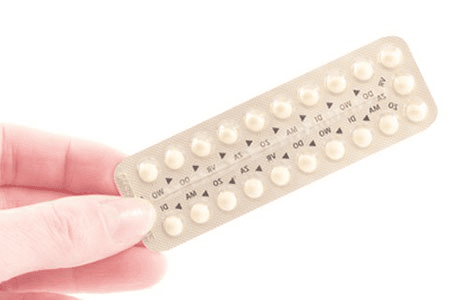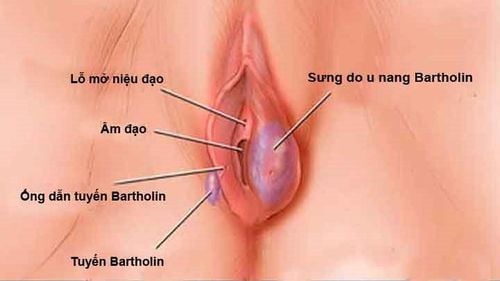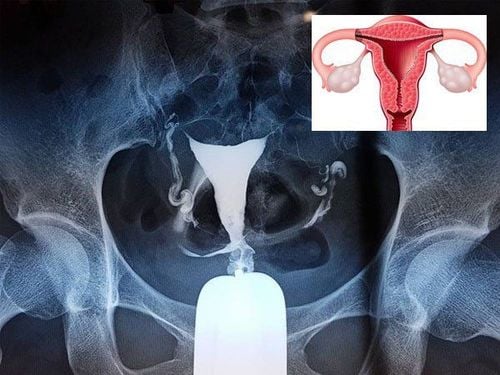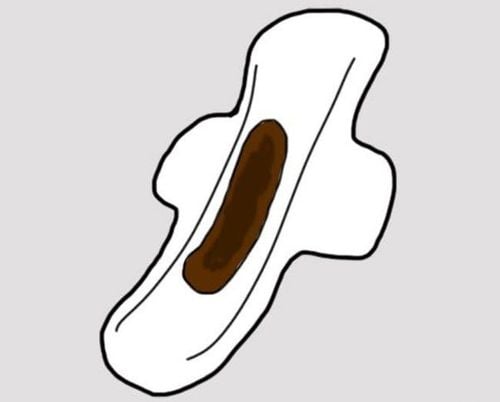This is an automatically translated article.
The article was professionally consulted with Master, Doctor Dinh Thanh Ha - Obstetrician and Gynecologist - Department of Obstetrics and Gynecology - Vinmec Nha Trang International General Hospital.A normal menstrual cycle helps a woman to predict when her period will appear. A missed period occurs when it occurs later than the expected date. So what is the cause of the late period?
1. What is the menstrual cycle?
Menstruation is a periodic shedding of the endometrium. The menstrual cycle is manifested by the hormonal changes of estrogen and progesterone during the cycle. Each menstrual cycle will have 1 or 2 eggs released from the ovary, then if a sperm is found, it will fertilize and the woman will become pregnant afterwards.However, if not fertilized, the sex hormones will begin to decrease and then cause a woman's period to appear. A menstrual cycle is counted from the first day of menstruation in one cycle to the first day of the next. In a normal woman, the menstrual cycle will range from 21 to 35 days.
2. What is a delayed period?
With that said, a normal menstrual cycle will last from 21 to 35 days. Normally, a woman's period is regular and a woman can predict the length of her menstrual cycle. If the period is past the predicted period, it is considered a missed period.Usually, the most common cause of a missed period is pregnancy. However, a missed period can also be caused by reasons other than pregnancy. Common causes can range from hormonal imbalances to serious medical conditions.
There are also two times in a woman's life when it is completely normal for her to have irregular periods: when she first gets her period and when menopause begins. As your body enters these transitions, your normal cycle can become irregular.
Most women who haven't gone through menopause usually get their period every 28 days. However, a normal menstrual cycle can range from every 21 to 35 days. If your period falls outside these ranges, it could be due to one of the following reasons.

3. Possible causes of late period in women.
3.1. Stress Stress can lower your hormones, change your daily routine, and even affect the part of your brain responsible for regulating your period - your hypothalamus. Over time, stress can lead to illness or sudden weight gain or loss, all of which can affect your cycle.If you feel that stress is leading to changes in your menstrual cycle, try to change your work or living regimen to regulate stress. Regular exercise can help get your period back to normal.
3.2. Low body weight Women with eating disorders, such as anorexia nervosa or bulimia, may miss periods. Weight 10% less than what's considered normal for your height can change the way your body works and stop ovulating. Treating your eating disorder and gaining weight in a healthy way can return your cycle to normal. Women who engage in strenuous exercise, such as running a marathon, may also experience a missed period.
3.3. Obesity Just like low body weight can cause hormonal changes, so can being overweight. Your doctor will recommend a sensible diet and exercise plan if obesity is a factor in your missed or missed period.

Other hormones, such as insulin, can also be out of balance. The body has insulin resistance related to PCOS. Principles for treating PCOS focus primarily on relieving symptoms. Your doctor may prescribe birth control pills or other medications to help regulate your cycle.
3.5. Using Contraception A woman may experience changes in her menstrual cycle when using birth control. Birth control pills contain the main hormones estrogen and progestin, which inhibit the ovaries from releasing an egg. Usually, it can take up to six months for your period to return to normal after stopping the pill. Other types of birth control such as the implant or the injection can also cause a missed period.
3.6. Chronic conditions Certain chronic diseases, such as diabetes and celiac disease, can also affect a woman's menstrual cycle. Changes in blood sugar levels are related to hormonal changes, so although rare, poorly controlled diabetes can cause irregular periods.
Celiac disease causes inflammation that can lead to damage in your small intestine, which can prevent your body from absorbing important nutrients. This can cause a missed period.
3.7. Early perimenopause Most women will begin menopause between the ages of 45 and 55. Women who develop menopausal symptoms around age 40 or earlier are considered to have early perimenopause. This could be due to your ovaries failing, and the result can be missed periods and eventually menopause.
3.8. Thyroid problems An overactive or underactive thyroid gland can also be the cause of irregular periods. Thyroid hormone regulates a woman's body metabolism, so sex hormone levels can also be affected. Thyroid problems can often be corrected with medication. After treatment, menstruation will usually return to normal.
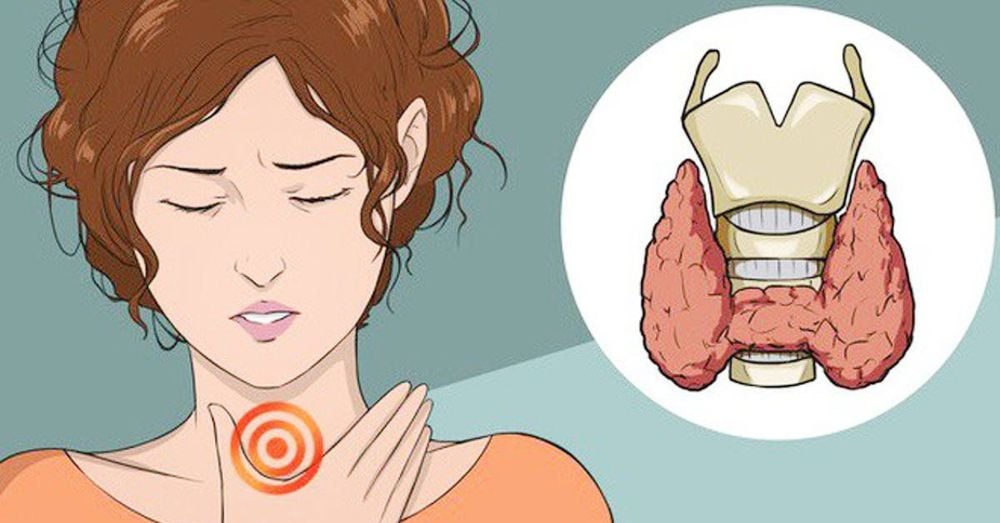
4. When to see your doctor
Your doctor can diagnose the exact cause of your missed or missed period and outline your treatment options. Keep track of changes in your cycle and other health changes to let your doctor know. This will help your doctor make a more accurate diagnosisRegular check-ups with an obstetrician-gynecologist can help solve many menstrual cycle questions. Sometimes a missed period is only 1-2 cycles and is not a cause for concern. However, certain symptoms may require immediate medical attention. These include:
Missing periods in a row Positive pregnancy test Having symptoms of PCOS (polycystic ovaries, acne, hirsutism, hair loss, obesity) Gaining or losing a lot of weight Feeling excessively stressed The package of examination and screening for gynecological diseases at Vinmec applies to cases of women with irregular menstrual cycles, amenorrhea, etc. The doctor then gives a scientific treatment plan, avoiding the risk of long-term disease affecting reproductive health and psychophysiology in women.
Please dial HOTLINE for more information or register for an appointment HERE. Download MyVinmec app to make appointments faster and to manage your bookings easily.
Reference sources: healthline.com, nhs.uk




